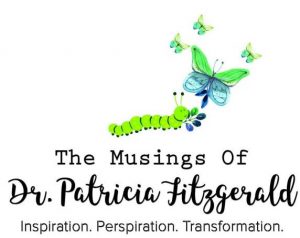Article Update, February 2020: Yale-Harvard Research Team Finds that the Nervous System is Key to Fighting Gut Infection.
Fascinating new research has come to light about the role the nervous system plays in healing gut infections.
Since up to 80% of of the immune system resides in the gut, experts have always presumed it was immune system that helped fight off intestinal foreign invaders. However, scientists have just discovered it’s actually nerve cells (not the immune cells) within the gut that produce the infection-fighting cytokines1!
This is an important discovery as it further validates the intimate relationship between our stress response, which is driven by the nervous system, and our gut health.
Read on to learn more about the science behind the stress-leaky-gut-syndrome connection and what you can do to safeguard your digestive health.
*************************************************************************************
When I first began writing and educating patients about Leaky Gut Syndrome and its connection to chronic disease (25+ years ago), it was not a well-known condition. I first wrote about it in The Detox Solution: The Missing Link to Radiant Health, Abundant Energy, Ideal Weight, and Peace of Mind. I had been observing it in patients for years and it made sense from a Traditional Chinese Medicine perspective. I was compelled to find current research on the subject. Thanks to pioneers such as one of my master teachers, Dr. Jeffrey Bland, the “father” of Functional Medicine, I was able to find information and solutions to help my patients.
In those days, the term “Leaky Gut” sounded like a humorous, made-up condition, the idea of a gut-brain connection was considered “out there”, and research on beneficial bacteria, candida overgrowth, and the microbiome was nearly non-existent. Although Chinese medicine had emphasized the gut-brain connection for thousands of years, these concepts were still emerging in the Western world.
Thankfully times have changed, and the very real condition of Leaky Gut Syndrome and the importance of the gut-brain connection have hit the mainstream.
But, despite all the information and research swirling around, one root cause of Leaky Gut has remained largely unrecognized.
In a word: stress.
Stress—or more specifically your response to stress—is believed by many experts (including myself) to be a significant contributing factor to Leaky Gut Syndrome.
It’s also one of the most unaddressed and under-treated factors which helps to explain why, despite all the treatment options and information out there, many people still struggle with the effects of “leaky gut”, or increased permeability.
In today’s post, we’ll give you a crash course in Leaky Gut including all its causal factors, little-known symptoms, and how you can mediate your stress response to prevent and help support healthy gut integrity.
A Crash Course in Leaky Gut
The small intestine is naturally permeable–it contains microscopic pores–to allow nutrients to enter the bloodstream. The term Leaky Gut is referring to the increased permeability of the small intestine. This increased permeability–widening of these microscopic pores–can contribute to a wide range of health challenges.
How does the gut become so compromised? We mentioned chronic stress as a key contributor, but there are others such as:
- Antibiotic overuse
- Genetic factors
- NSAIDs and other medications
- Nutrient deficiencies
- Gluten and other trigger foods
- Chronic bacterial or parasitic infections such as H. Pylori
- An overgrowth of Candida Albicans and other fungi
Now that you know some of the culprits behind Leaky Gut, let’s look at how they degrade your digestive health over time.
How Exactly Does Your Gut Start Leaking?
A healthy gut is like a tightly woven piece of fabric, allowing small particles like nutrients and enzymes to flow in, while keeping larger foreign particles like viruses, unhealthy bacteria, toxins, etc. out.
However, when your gut becomes compromised by overuse of antibiotics, poor nutrition, chronic stress, etc. its fabric becomes vulnerable and the size of the pores widen. So your gut goes from having these beneficial tight junctions that allow nutrients to flow through to having “holes” that can significant compromise your health.
This increased permeability or “leakiness” leaves your gut and immune system wide open to an array of foreign invaders, including large food particles which aren’t meant to enter the intestines at this phase in their assimilation.
This sets off a “red alert” causing your body to default to a chronic inflammatory state which manifests as symptoms of Leaky Gut and in many cases, autoimmune conditions.
But let’s look a little closer at how your stress response factors into all of this…
A Deeper Look at The Gut-Brain-Stress Connection
Your gut and your brain are connected by an information-super-highway called the vagus nerve or “enteric nervous system”.
That’s right, your gut has its own nervous system, called the enteric nervous system. It is chock-full of neurons—around 500 million of them—and those neurons communicate directly with your body’s other thinking and feeling systems, like your autonomic nervous system, endocrine (hormonal) system, and your brain.
So those “gut feelings” you have are a very real expression of your gut-brain connection.
When you experience stress your brain responds by revving up production of stress hormones like cortisol. Cortisol, a key player in your fight-or-flight response, not only helps you get-up-and-go it also shuts down your digestive system, suppresses your immune system, disrupts sleep patterns, and hinders wound healing.
Now, an increase in stress hormones is actually helpful if you need to avoid a car accident or escape a hungry tiger, but it’s not meant to happen on a regular basis.
And, if you experience chronic stress at work, at home, etc., it’s happening to you every day.
What’s more, the fight or flight response was designed to be accompanied by a burst of activity like running, fighting, etc. to burn up the extra stress hormones.
But modern stress is typically experienced in a sedentary position (like on the freeway or at the computer), leaving your body no opportunity to rid itself of excess cortisol.
So, stress is causing you digestion to shut down which damages your gut AND hinders its ability to heal, while your gut sends a “red alert” message up your brain creating a vicious cycle.
Add to this other causal factors that disrupt gut health like antibiotics and poor diet, and there is a vulnerability in many for Leaky Gut Syndrome.
This cycle can only be fully broken and healed by resetting the gut-brain connection through adopting a healthier response to stress.
The Little-Known Symptoms of Leaky Gut
Leaky Gut symptoms and diagnosis is where things can get frustrating for both patients and practitioners.
Why? Because it’s still considered a “new” condition in mainstream medicine, many Western physicians are still learning how to recognize the seemingly random symptoms of Leaky Gut.
Symptoms that may point to Leaky Gut:
- Allergies
- Asthma
- Autoimmune disease (we’ll touch on this more)
- Brain fog
- Food sensitivities
- Constipation, diarrhea, bloating, gas, Irritable Bowel Syndrome (IBS)
- Inflammatory skin conditions such as eczema or psoriasis
- Mood swings or psychological health issues 2
- Sensory issues, including a connection to autism
- Thyroid/endocrine/hormone issues
It takes a real mind-shift to start associating symptoms of the brain, skin, or thyroid with gut health.
Yet, when you understand the origins of Leaky Gut and how it affects our entire body, especially the immune system, it all begins to make sense.
Add in the latest research on the human microbiome and the gut-brain connection, and the correlation between gut health and mental health and chronic disease is undeniable.
Healing Your Stress Response to Heal Leaky Gut
In addition to dietary changes and nutritional recommendations (which we’ll cover below), I recommend patients adopt one or more of the following nourishing practices:
- Meditation and Qigong
- Getting enough sleep: 8-9 hours per night
- Engaging in regular moderate enjoyable exercise, like walking, dancing, Qigong, yoga, etc.
- Spending time with positive, uplifting people—socialization is a powerful stress reducer
- Diaphragmatic breathing/abdominal breathing/belly breathing AKA proper breathing
- Shifting to an attitude of gratitude
- Practicing mindfulness, being present
- Acupuncture
These practices will help your body release less of the pro-inflammatory stress hormones while naturally supporting immunity and strengthening your gut. And a side effect is that you can feel more peaceful and centered.
What About Dietary and Other Lifestyle Changes for Leaky Gut?
Though you can’t fully heal from Leaky Gut without addressing your stress response, the following dietary changes and supplementation will help accelerate the healing process.
Foods to Avoid: In many people, these foods upset the gut microbiota and affect the stress response.
- Gluten
- Sugar
- Grains
- Processed foods
- Dairy products
- Soy
- Excessive caffeine
- Alcohol
- Known allergens
Foods that Heal:
- Fermented foods like cultured vegetables, kombucha, and kimchi
- Bone broths
- Vegetables
- Moderate amounts of fruit
- Cultured dairy products like yogurt, kefir
- Coconut oil and coconut products
- Herbal teas like slippery elm, chamomile, and passionflower
Herbs and Supplements to Consider with your Practitioner in your Treatment Plan:
- Ashwagandha and other adaptogens to balance the stress response
- Deglycyrrhizinated licorice
- High quality probiotic/prebiotic supplement
- L-glutamine
- Zinc
- Flower Essences (for emotional support)
- Hydrolyzed collagen
- Gelatin
- Essential fatty acids
- Digestive enzymes (look for protease-free enzymes if you are experiencing an ulcer)
Important: There is no supplement, book, food, or wellness trend that can take the place of your own connection to inner peace–your own way to find your center. I have seen many, many patients over the years who have changed their diets and have taken wonderful supplements for gut support. They have seen wonderful practitioners who have given them exceptional guidance and treatments. I would scratch my head and think – what is the missing piece – in most cases, they hadn’t learned to develop a practice to help them find their center independent of outer circumstances. A practice to cultivate peace within. Many were continually putting out the fires of circumstances that felt stressful, yet not cultivating resilience and inner strength. Given the culture we live in that values doing over being, excess over simplicity, many forgot the power they had inside. They realized they had been giving it away, little by little. As they committed to getting their power back, little by little, they rediscovered that there was joy and peace inside after all. As their spirits were strengthened, their emotional and physical health responded.
Where to Find Help
Treatment to support gut immunity requires a holistic approach to mind-body healing. Knowing this, I suggest you seek the help of an integrative practitioner who understands the gut-brain connection and has a solid background in helping patients resolve gut-health issues and immune challenges.
For more information on the gut-brain connection, I highly recommend a wonderful book on the topic by Emeran Mayer, MD: “Mind-Gut Connection”.
-Dr. Patricia
References:
- https://www.sciencedaily.com/releases/2020/01/200109141013.htm
- https://www.ncbi.nlm.nih.gov/pubmed/26528128

